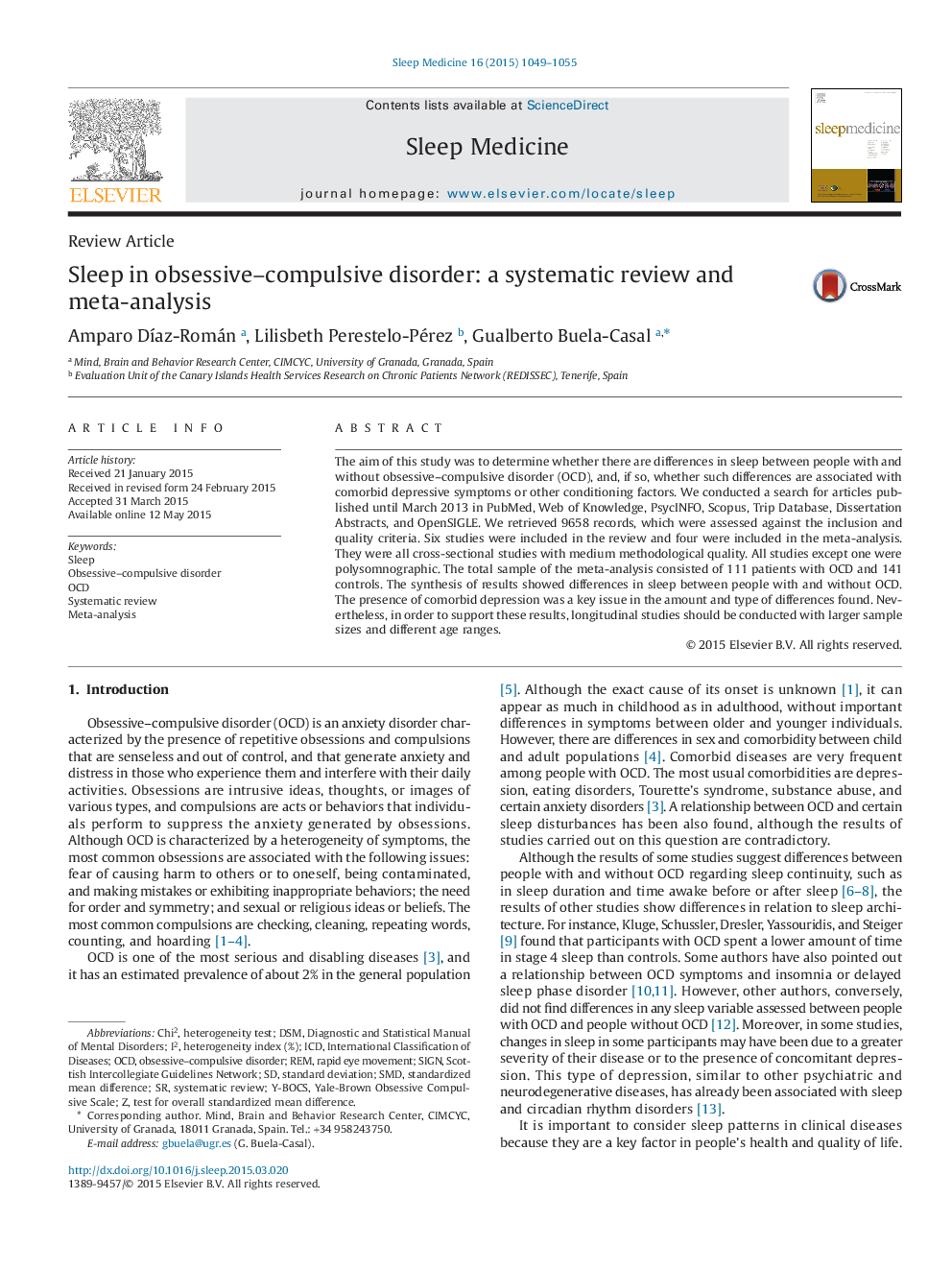| Article ID | Journal | Published Year | Pages | File Type |
|---|---|---|---|---|
| 6060370 | Sleep Medicine | 2015 | 7 Pages |
Abstract
The aim of this study was to determine whether there are differences in sleep between people with and without obsessive-compulsive disorder (OCD), and, if so, whether such differences are associated with comorbid depressive symptoms or other conditioning factors. We conducted a search for articles published until March 2013 in PubMed, Web of Knowledge, PsycINFO, Scopus, Trip Database, Dissertation s, and OpenSIGLE. We retrieved 9658 records, which were assessed against the inclusion and quality criteria. Six studies were included in the review and four were included in the meta-analysis. They were all cross-sectional studies with medium methodological quality. All studies except one were polysomnographic. The total sample of the meta-analysis consisted of 111 patients with OCD and 141 controls. The synthesis of results showed differences in sleep between people with and without OCD. The presence of comorbid depression was a key issue in the amount and type of differences found. Nevertheless, in order to support these results, longitudinal studies should be conducted with larger sample sizes and different age ranges.
Keywords
Chi2DSMScottish Intercollegiate Guidelines NetworkREMY-BOCSOCDSMDObsessive–compulsive disorderSIGNstandard deviationstandardized mean differencerapid eye movementSleepICDDiagnostic and Statistical Manual of Mental DisordersInternational Classification of DiseasesMeta-analysisSystematic reviewYale-Brown Obsessive Compulsive Scale
Related Topics
Life Sciences
Neuroscience
Neurology
Authors
Amparo DÃaz-Román, Lilisbeth Perestelo-Pérez, Gualberto Buela-Casal,
